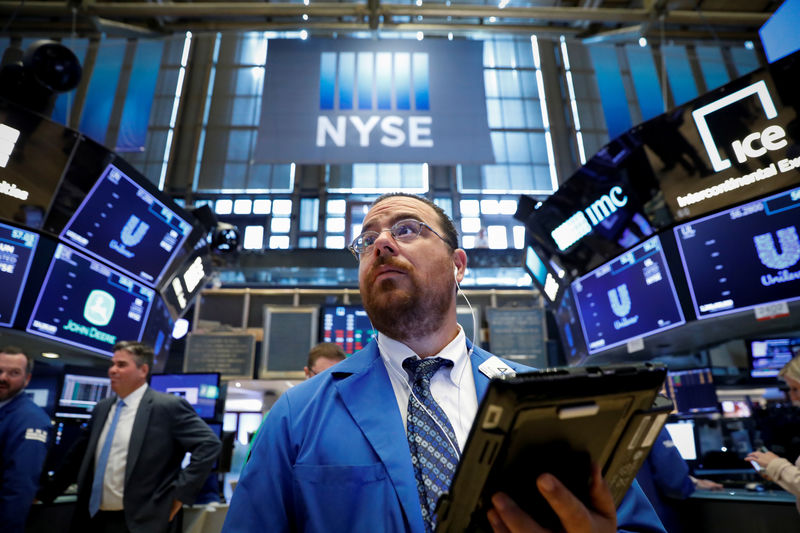This post was originally published on this site
https://i-invdn-com.akamaized.net/news/LYNXMPEE7024A_M.jpg
Investing.com – Wall Street struggled for direction Friday as investors weighed up further evidence of weakness in the economy against the backdrop of fresh economic stimulus measures.
The Dow Jones Industrial Average was flat, the S&P 500 rose 0.33%, while the Nasdaq Composite gained 0.61%.
In a further sign the economic downturn is likely to be severe, U.S. durable goods orders fell by 14.4% last month, the biggest slide since 2014, led by waning demand for big-ticket items such as cars and slump in orders for Boeing (NYSE:BA) passenger planes.
But some on Wall Street suggested the underlying data was more resilient and the weakness was largely driven by transportation orders.
“Outside of transportation, we saw an underlying resiliency in the face of the lockdowns, at least in March,” Jefferies said in a note.
The weaker-than-expected data come just as President Donald Trump signed the $484 billion coronavirus stimulus package into law to ease the Covid-19 hit to the economy at time when some states are set to reopen.
But with worries over the pandemic still running high, some of the biggest companies are wary of opening for business, with Macy’s (NYSE:M), Gap (NYSE:GPS), and TGI Fridays choosing to remain shuttered in states such as Georgia and South Carolina.
Energy stocks, meanwhile, fell 1% as oil prices ran out of steam, easing from their sessions highs.
But ahead of major tech earnings next week, including from Facebook (NASDAQ:FB), Alphabet (NASDAQ:GOOGL), Apple (NASDAQ:AAPL) and Amazon (NASDAQ:AMZN), investors showed some interest in tech.
Chip stocks also edged higher, with the Philadelphia Semiconductor Index up about 1%, though a 1.5% decline in Intel (NASDAQ:INTC) kept a lid on gains.
Intel reported earnings that topped estimates, but the chipmaker pulled its guidance, stoking concerns its future growth is more likely to ease rather than accelerate.
Airlines, meanwhile, were given a slight lift off the lows after President Trump reportedly suggested the government should buy “4-5 years worth of airline tickets” in advance to boost airlines.
American Airlines (NASDAQ:AAL) was down about 0.7%, United Airlines (NASDAQ:UAL), and Delta Air Lines were down more than 1%.

